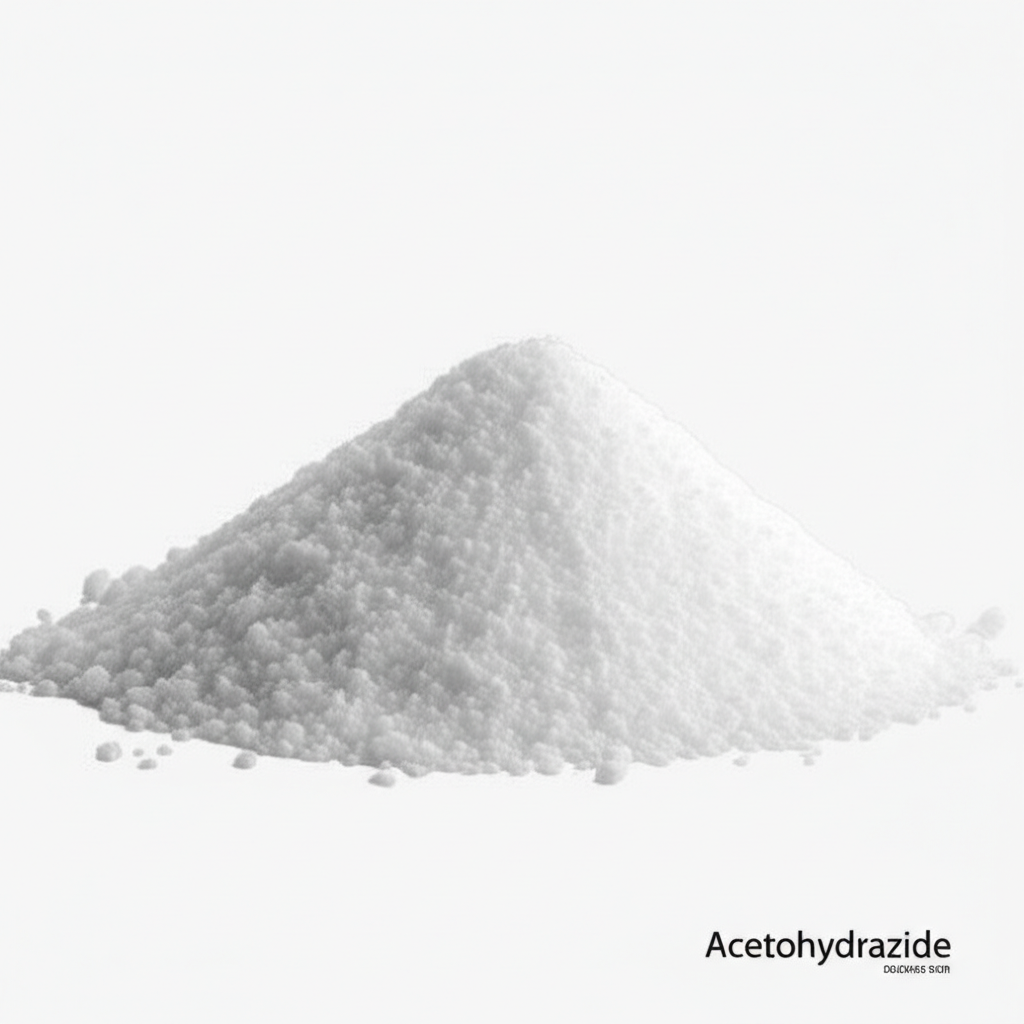Acetohydrazide (CAS 1068-57-1): A Comprehensive Overview of its Properties, Applications, and Synthesis
Explore the multifaceted nature of Acetohydrazide, a vital compound in antibiotic development and organic synthesis. Discover its chemical profile, therapeutic significance, and the latest research into its derivatives.
Get a Quote & SampleProduct Core Value

Acetohydrazide
Acetohydrazide is a critical chemical compound with significant applications, particularly in the pharmaceutical industry. As a reliable supplier in China, we offer high-quality Acetohydrazide (CAS 1068-57-1) that adheres to stringent quality standards. Its primary use as an antibiotic for treating Mycobacterium tuberculosis highlights its importance in combating infectious diseases, specifically inhibiting mycolic acid biosynthesis. Beyond its therapeutic role, Acetohydrazide serves as a key intermediate in various organic synthesis pathways, contributing to the development of new chemical entities and potential drug leads.
- Understanding Acetohydrazide 875 mg applications: This compound is crucial for the treatment of infections such as respiratory tract infections, ear infections, skin infections, and urinary tract infections by inhibiting the synthesis of bacterial cell walls.
- Acetohydrazide derivatives antimicrobial activity has been extensively studied, revealing potential against Gram-positive bacteria like Staphylococcus aureus and Gram-negative bacteria, making it a valuable subject in medicinal chemistry research.
- The synthesis and characterization of novel hydrazide-hydrazone derivatives, including Acetohydrazide, are key to addressing the growing issue of antibiotic resistance, offering promising alternatives to conventional antimicrobial agents.
- Acetohydrazide chemical properties make it an important intermediate in organic synthesis, contributing to the development of diverse chemical structures with potential biological activities.
Key Advantages of Acetohydrazide
Therapeutic Efficacy
Acetohydrazide acts as an antibiotic, particularly effective against Mycobacterium tuberculosis, contributing to vital treatments and showcasing its importance in infectious disease management.
Antimicrobial Research Foundation
The study of Acetohydrazide derivatives has shown moderate to good antibacterial activity, making it a focal point in the ongoing quest for new antimicrobial agents to combat rising antibiotic resistance.
Organic Synthesis Versatility
As an important intermediate in organic synthesis, Acetohydrazide enables the creation of complex molecules, driving innovation in chemical research and development.
Key Applications
Antibiotic Treatment
Acetohydrazide is a critical component in the treatment of tuberculosis, directly addressing the bacterial mechanisms that cause this disease.
Antimicrobial Development
Research into Acetohydrazide derivatives is actively contributing to the discovery of new antibiotics capable of overcoming emerging resistance patterns.
Organic Synthesis Intermediate
Its role as an intermediate facilitates the synthesis of diverse chemical compounds, supporting advancements in various chemical industries.
Biochemical Research
The compound's mechanism of inhibiting mycolic acid biosynthesis makes it a subject of interest in biochemical research for understanding bacterial defense systems.
